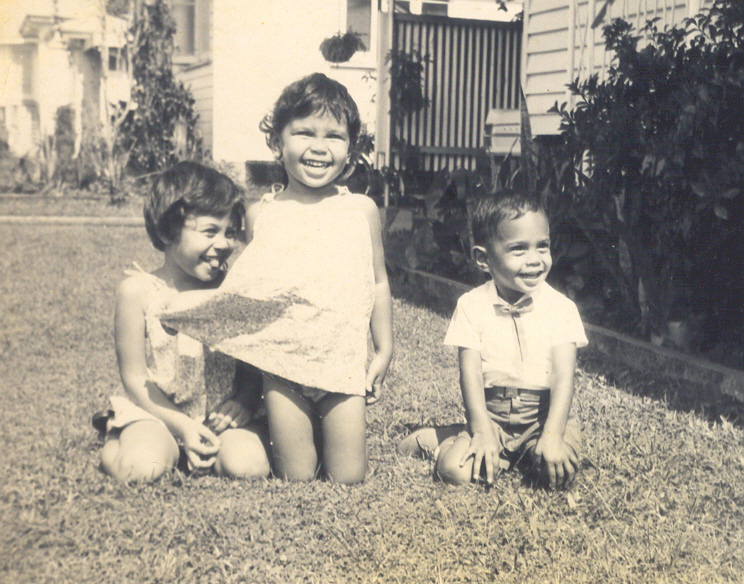The United Nations Permanent Forum on Indigenous Issues estimates there are more than 370 million Indigenous peoples spread across 70 countries worldwide, each practicing unique traditions, retaining social, cultural, economic and political characteristics that are distinct from those of the dominant societies in which they live.
Many Indigenous peoples are the holders of unique languages, knowledge systems and beliefs, and possess invaluable traditional knowledge for the sustainable management of natural resources and have a special relation to and use of their traditional land, waters or territories. Ancestral lands, waters and territories are of fundamental importance for their physical and cultural survival as peoples.
In considering the diversity of Indigenous peoples, an official definition of ‘indigenous’ has not been adopted by any United Nations (UN) system or body.
According to the UN the most fruitful approach is to identify rather than define Indigenous peoples. This is based on the fundamental criterion of self-identification as underlined in a number of human rights documents.
Australia’s Indigenous peoples are two distinct cultural groups made up of Aboriginal and Torres Strait Islander peoples. But there is great diversity within these two broadly described groups exemplified by the over 250 different language groups spread across the nation.
An accepted definition of an Indigenous Australian proposed by the Commonwealth Department of Aboriginal Affairs in the 1980s and still used by some Australian Government departments today is; a person of Aboriginal or Torres Strait Islander descent who identifies as Aboriginal or Torres Strait Islander and is accepted as such by the community in which he or she lives.
Aboriginal and Torres Strait Islander peoples also have their own laws and customs to determine the membership of their group.
To use the term Indigenous Australians or Aboriginal and Torres Strait Islander people?

Many people prefer to be called Aboriginal or Torres Strait Islander, rather than the generic term Indigenous Australian. Image supplied by John Paul Janke.
Many people prefer to be called Aboriginal or Torres Strait Islander, rather than the generic term Indigenous Australian. Image supplied by John Paul Janke.
It’s best to find out what individuals prefer to be called, rather than making assumptions.
Today, the term ‘Indigenous Australian’ is used to encompass both Aboriginal people and Torres Strait Islander people. However many Aboriginal and Torres Strait Islander people do not like to be referred to as ‘Indigenous’ as the term is considered too generic.
When used in Australia, the words Indigenous, Aboriginal and Torres Strait Islander are capitalised, as would be the name of any other group of people. It is best not to resort to the acronyms of ATSI or TSI.
Aboriginal people have referred to themselves for example as Koori, Murri or Nunga, which is relevant to the greater region they are connected to. Aboriginal identities can also directly link to their language groups and traditional country (a specific geographic location), for example, Gunditjamara people are the traditional custodians of western Victoria, the Gadigal people of the Eora nation are from Sydney, and the Yawuru people are the traditional custodians of Broome in Western Australia.
Another way Aboriginal and Torres Strait Islander people might describe themselves, which again relates to their country (including the waters), is ‘saltwater people’ for those who live on the coast, or ‘freshwater’, ‘rainforest’, ‘desert’ or ‘spinifex’ for people who live in that ecological environment.
Torres Strait Islander people prefer to use the name of their home Island to identify themselves to outsiders, for example a Saibai man or woman is from Saibai, or a Meriam person is from Mer. Many Torres Strait Islanders born and raised in mainland Australia still identify according to their Island homes.
In Australia, there are a range of specific grants, scholarships, university courses or government programs directly intended for Aboriginal and Torres Strait Islander people. To access these programs or services, which have generally been established to address the historical social, health and educational disadvantage of Indigenous people, Aboriginal and Torres Strait Islander peoples may be asked to confirm their Aboriginal or Torres Strait Islander heritage. This help ensures that the specific programs or grants or scholarships intended for Aboriginal and Torres Strait Islander people reach and are used by Aboriginal and Torres Strait Islander peoples.